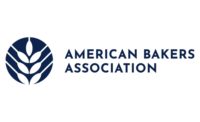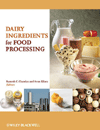ABA, SFA recognize IOM’s sodium findings

The American Bakers Association (ABA) and Snack Food Association (SFA) believe the findings from the Institute of Medicine’s (IOM) report “Sodium Intake in Populations: Assessment of Evidence” add a vital new perspective to the national discussion of sodium’s role in the American diet.
ABA and SFA members support efforts to improve the health of all Americans by providing ample product choices with lower sodium, fat and calories. These changes are based on customer demand and scientific evidence. Both organizations say they are pleased that IOM performed such a detailed analysis of the latest sodium data, releasing results that counter current and prevalent recommendations.
The IOM committee reviewed the latest data on sodium consumption and health outcomes and concluded that evidence does not support current efforts to recommend reducing sodium below 2,300 mg. per day for the general population, including subgroups identified in the 2010 Dietary Guidelines for Americans. Additionally, while the committee found that some Americans consumed “excessive sodium,” it did not identify a scientifically based definition for “excessive intake” of sodium.
The Center for Disease Control and Prevention (CDC) requested that IOM examine the methodologies and conclusions in the latest research on dietary sodium intake and health outcomes in the general population and among specific populations. The committee was asked to comment on the implications of this new evidence to gradually reduce sodium intake and to identify gaps in the data.
Following the announcement of the committee members last fall, ABA and SFA, along with other organizations, raised concerns about the lack of balance among committee members. ABA and SFA say they are pleased that IOM recognized and addressed those concerns by including additional expertise on the committee.
IOM identified a number of research and data gaps to address before recommending specific sodium targets for the general population. Jim McCarthy, president and CEO of SFA responded saying, “We look forward to working with the scientific community to address those gaps. It is important not to get ahead of the science in our efforts to address chronic disease and our industries stand ready to be a part of a science based solution.”
ABA president and CEO Robb MacKie says, “This lack of data is particularly important given the upcoming 2015 Dietary Guidelines process. We anticipate a thorough review of this report by the 2015 Dietary Guidelines Advisory Committee.”
Looking for a reprint of this article?
From high-res PDFs to custom plaques, order your copy today!







